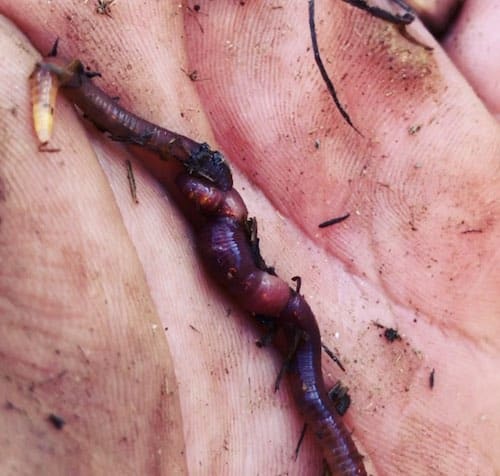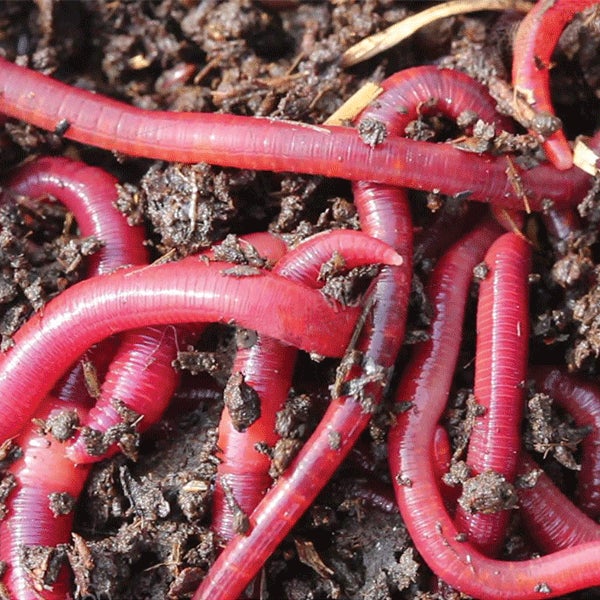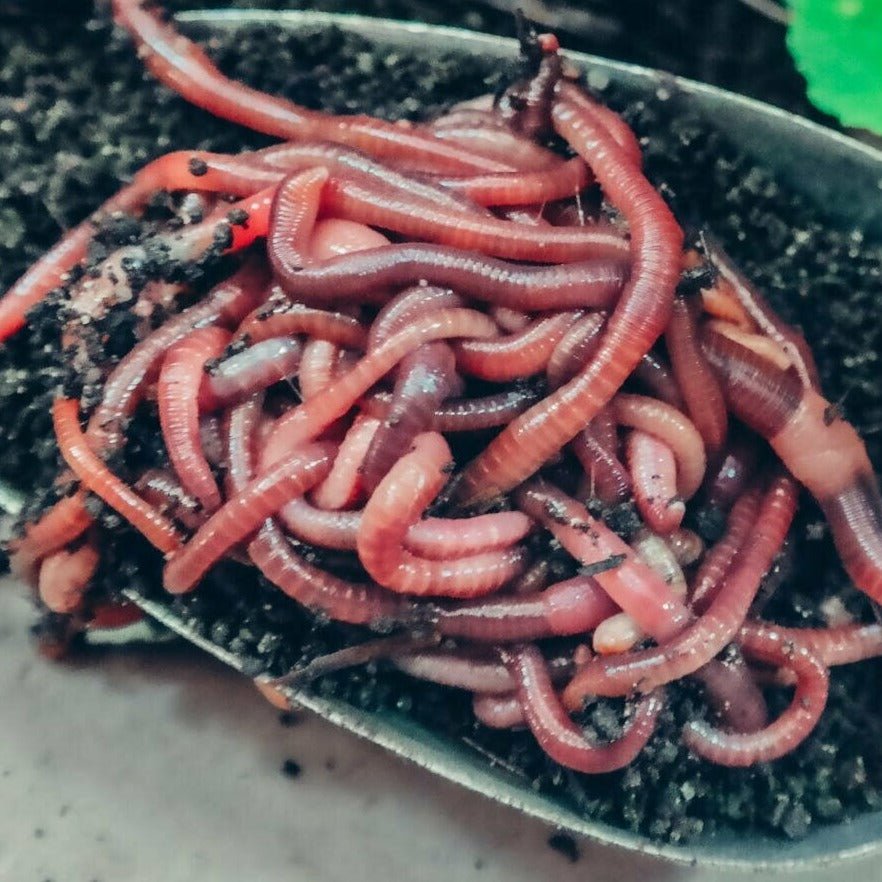Why Red Wigglers Are Vital for Organic Farming
Red wigglers play an essential function in natural farming, mainly through their unique ability to decay natural products and improve soil health. Their activity not just enhances the soil with important nutrients however also cultivates a growing environment crucial for sustainable farming. The physical processes they involve in, such as oygenation and moisture retention, contribute dramatically to boosted crop yields. However, the extent of their effect on agricultural techniques and dirt biology increases interesting questions regarding the future of chemical-free farming. What implications might this have for farming techniques?
Role of Red Wigglers in Soil Wellness

Furthermore, red wigglers boost dirt framework by developing networks as they delve. These networks enhance aeration and water infiltration, promoting a healthier root atmosphere. Their activity also assists in maintaining ideal moisture levels, which is crucial for healthy plant growth.

Benefits of Worm Spreadings
Worm castings, the nutrient-rich waste matter produced by red wigglers, act as an effective change for natural farming. These castings are teeming with important nutrients such as nitrogen, phosphorus, and potassium, which are vital for plant growth. Unlike artificial fertilizers, worm castings launch nutrients slowly, offering a constant supply with time and decreasing the threat of nutrient leaching and overflow.
Moreover, worm castings improve dirt framework and aeration, promoting much healthier root systems. Their high natural issue content enhances wetness retention, making it possible for plants to much better withstand drought conditions. In addition, worm spreadings contain useful microbes that sustain plant health and wellness by suppressing pathogens and improving nutrition uptake.
The application of worm spreadings can bring about enhanced crop yields and boosted quality of fruit and vegetables, making them a very useful resource for natural farmers. Their usage also aligns with sustainable farming practices, adding to soil fertility without the adverse ecological effects connected with chemical fertilizers. On the whole, the incorporation of worm spreadings right into farming techniques cultivates an extra resistant and productive ecosystem, underscoring the significance of red wigglers in organic farming systems.

Enhancing Nutrient Cycling
(red wiggler farming)Nutrition cycling is a critical procedure in natural farming, and the integration of red wigglers plays a crucial duty in improving this cycle. These earthworms contribute dramatically to the malfunction of raw material, assisting in the change of complex organic products into simpler, a lot more available nutrients for plants. As red wigglers eat rotting raw material, they excrete nutrient-rich castings, which are including advantageous germs. This microbial activity more aids in the disintegration process, ensuring that vital nutrients are readily offered for plant uptake.
In addition, red wigglers aid to speed up the mineralization of nutrients, transforming them from inert forms into bioavailable types that plants can soak up. This process is vital for keeping soil fertility and advertising healthy and balanced crop development. The visibility of red wigglers also motivates a varied dirt ecosystem, fostering an equilibrium of nutrients that sustains numerous plant types.
Improving Dirt Framework
The improvement of soil framework is important for promoting a healthy and balanced farming ecosystem, and the task of red wigglers considerably adds to this enhancement. These earthworms play a vital role in freshening the dirt and creating a network of channels that assist in water seepage and origin infiltration. As they burrow through the soil, red wigglers break up compressed layers, permitting for far better oxygen exchange and advertising microbial task.
Furthermore, the organic matter created from their waste, referred to as vermicast, improves dirt gathering. This procedure develops secure globs of dirt fragments, boosting dirt porosity and decreasing disintegration (red wigglers). The existence of red wigglers likewise motivates the advancement of helpful fungal networks, which are right here critical for nutrient uptake by plants
Supporting Lasting Practices
Incorporating red wigglers right into chemical-free farming techniques not just improves soil health but also promotes lasting agricultural methods. These earthworms play an essential duty in nutrition cycling, transforming organic waste right into beneficial garden compost that improves the dirt. By making use of red wigglers, farmers can successfully minimize reliance on synthetic plant foods, consequently lessening chemical overflow and its destructive results on environments.
Moreover, the incorporation of red wigglers encourages the technique of recycling organic products, such as kitchen area scraps and ranch waste. This waste decrease method not only lowers disposal prices however also cultivates a closed-loop system where nutrients are constantly returned to the dirt (red wigglers). Such methods are vital in mitigating environment modification, as they enhance carbon sequestration and minimize greenhouse gas emissions
Moreover, red wigglers enhance water retention in the dirt, which is crucial in times of drought. Their burrowing tasks create networks that allow water to pass through deeper right into the ground, thus promoting efficient water usage. Ultimately, incorporating red wigglers into natural farming not only sustains biodiversity but likewise lines up with the principles of lasting agriculture, supplying a holistic strategy to food production.
Verdict
Finally, red wigglers play a critical role in natural farming by significantly improving dirt wellness and fertility. Their ability to decay organic matter and create nutrient-rich castings cultivates a growing microbial neighborhood, which is vital for nutrition cycling. Furthermore, the burrowing activities of these worms boost soil structure and oygenation, facilitating much better water seepage and origin growth. Therefore, the combination of red wigglers right into agricultural practices is crucial for advertising sustainability and improving overall dirt quality.